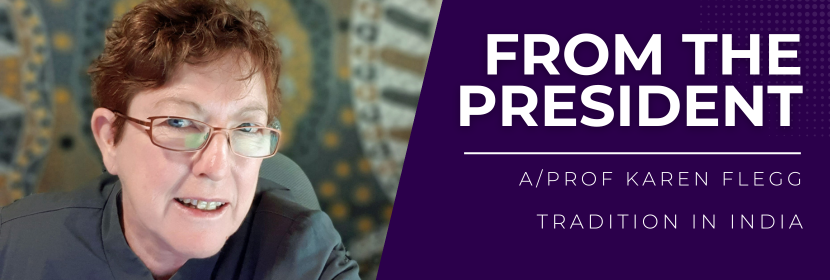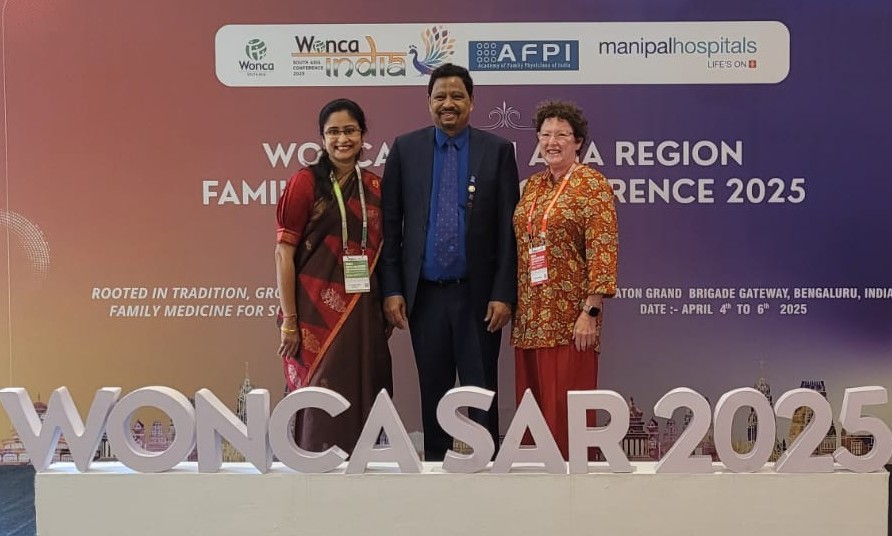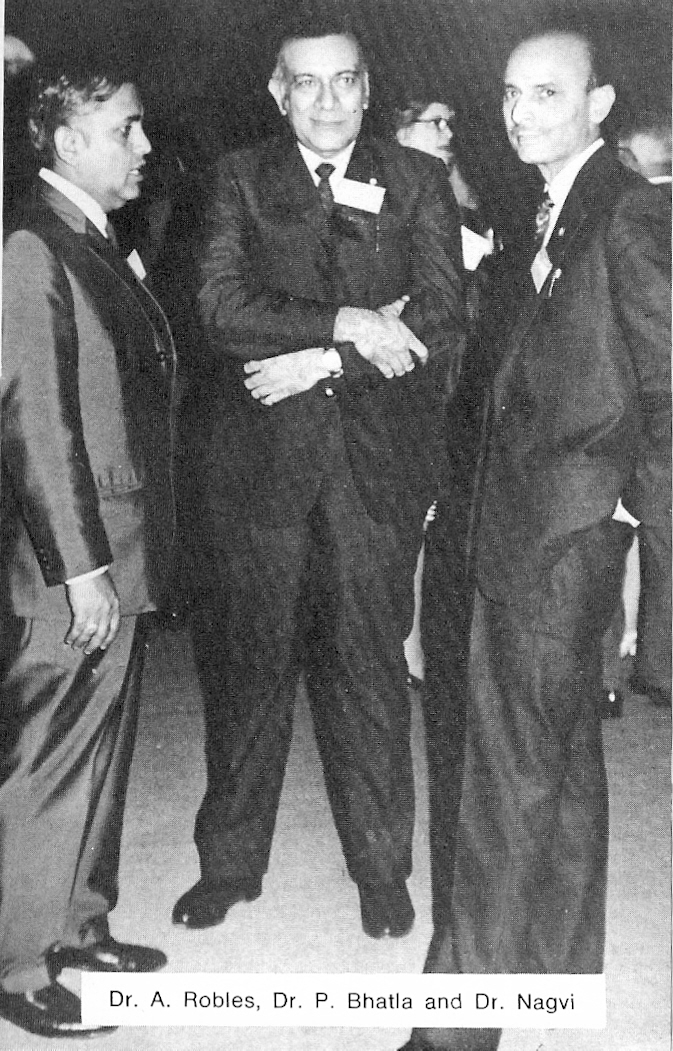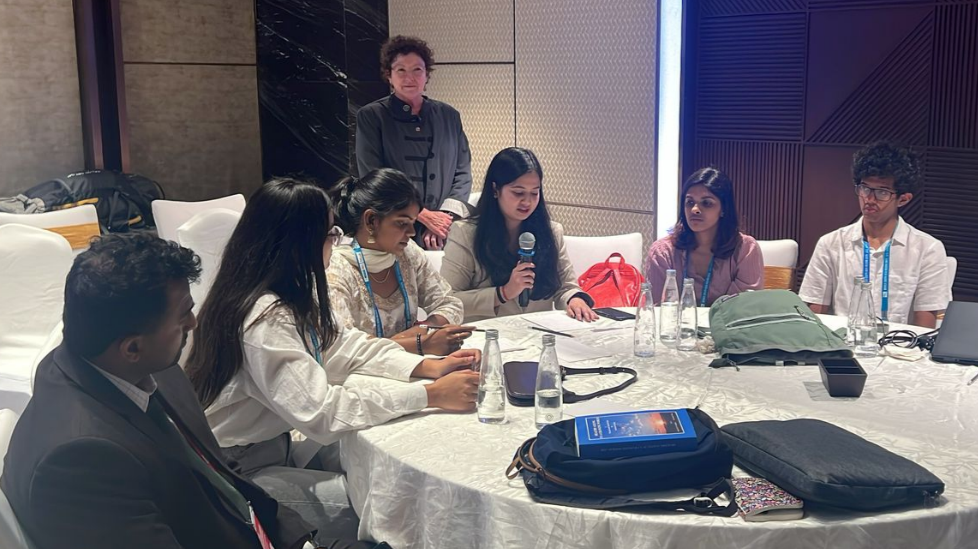From the President: Tradition in India

From the President: Tradition in India
At the beginning of April, I was honoured to be able to attend the very vibrant WONCA South Asia region conference held in Bengaluru, India.
The conference was a realisation of a dream for the organisers, Col Dr Mohan Kubendra, Dr Roshni Jhan Ganguly and their hardworking colleagues. It culminated in a vibrant and enthusiastic team effort, with a strong academic program much dancing and cultural showpieces.

Photo: Dr Roshni with Dr Sri Ranjan and WONCA President
International guests from 23 countries were warmly welcomed with traditional Indian hospitality and there were 720 attendees. A hybrid mode allowed for inclusivity and enhanced participation virtually. Eleven young doctors received a bursary sponsored by the MRCGP[INT] South Asia Board.
Dr Roshni Jhan Ganguly said “India is a land of unity in diversity—many cultures, many voices, and yet one heartbeat. Primary care, much like our country, binds us together across borders, systems, and perspectives.”
I was honoured to be awarded the first ever Fellowship of the Academy of Family Physicians of India (AFPI), presented by Col Dr Mohan Kubendra. Our President-elect, Dr Viviana Martinez-Bianchi was similarly honoured as were our immediate past president Dr Anna Stavdal and current South Asia region President, Dr Sri Ranjan, and past WONCA executive member 2013-2016 (and the inaugural Young Doctors’ Representative) Dr Raman Kumar.
The theme “Rooted in Tradition, Growing with Innovation. Family Medicine for South Asian Well-being” was well expanded on. There was strong representation from local family physicians and several high-level political dignitaries honoured the team with their presence.
Dr P.C. Bhatla - Founding Father
To address “tradition” in my keynote, I could not speak about tradition in India without speaking about the forefather of family medicine in India and arguably the world Dr Prakash Chand Bhatla – an institution of Family Medicine in India and in WONCA.

President (1975–76) of Indian Medical Association (IMA). He founded IMA CGP (Indian Medical College of General Practitioners), and his foundational work led to the recognition of Family Medicine as a specialty in India.
Dr Bhatla was the convenor of the Third World Conference on General Practice in New Delhi, India, in 1968. These were formative times for WONCA, and a small group of family doctors moved toward formation of WONCA which finally happened in Melbourne 1972.
P.C. Bhatla was instrumental in WONCA’s formation, and he received the first ever WONCA fellowship award 1976, the most prestigious global Family Medicine award.
Photo shows Dr PC Bhatla in Melbourne in 1972 (centre)
WONCA South Asia Regional Council Meeting

A WONCA South Asia regional council meeting was held concurrent with the conference. Region President, Dr K Sri Ranjan reports that almost every member attended, and most were present in person with the others online. Many important matters were discussed, and most decisions were unanimous. It was agreed to support WONCA Executive’s decision of appointing a Professional Conference Organiser (PCO) for world WONCA conferences. South Asia council congratulated AFPI, the host of the conference, for well attended and well organised conference.
I must congratulate the Host Organising team on conducting an eco-friendly conference. Well done to the Academy of Family Physicians of India (AFPI).
The Young Doctors’ movement (YDM) consider their role
The Spice Route Young Doctors workshop considered opportunities available for young doctors, and how the young doctors could play an advocacy role in WONCA. As well they considered mentorship, career development and how to get seniors’ support. Timely discussions given the recent launch of a YDM mentorship programme.
Global Rural Summit
The conference was preceded by a one-day Global Rural Summit organised by Dr Pratyush Kumar, Chair-elect of the WONCA Working Party on Rural Practice. Key learnings from the day included:
- Discussions highlighted that issues such as workforce shortages, limited resources, and the impact of climate change are deeply intertwined. Addressing these effectively requires collaboration between healthcare professionals, policymakers, educators, and community stakeholders.
- Innovation and adaptation are crucial for overcoming geographical barriers. The summit showcased examples of successful telehealth initiatives, mobile health clinics, and community-based programs that are effectively reaching underserved rural populations.
- Investing in the rural healthcare workforce is paramount for sustainable change.
- Community engagement and culturally sensitive approaches are fundamental to effective rural healthcare delivery.
- The summit provided a valuable platform for exchanging ideas, best practices, and research findings from around the globe.

Photo: Rural Summit workshop feedback
Pratyush and the rural team are to be congratulated on an engaging day.
Assoc Prof Karen Flegg
WONCA President